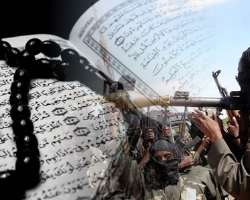Religion And Ethnic Politics In Nigeria; Enemies Of Democracy

Political discussions in Nigeria are hardly made without bringing religion or ethnic affiliations to bear. The different religions and cultures, out of which we derive our values and heritage, are the things that define us a people. However, if we do not separate these factors from governance, they may as well constitute our own destruction.
Majority of the developmental challenges we are faced with as a nation may not be entirely because of individuals or the political party in power but basically because we are polarized along ethnic and religious lines.
These divisions most often give rise to self-centeredness and quest for superiority which graduates into shear hatred and fervent desire to decimate each other. This is the situation we are faced with right now in our country where issues like the ravaging fulani herdsmen era and the fuel subsidy is being greatly politicized.
The irony of the subsidy imbroglio is that the same people who mobilized Nigerians against its removal in 2012 by the then administration of President Goodluck Jonathan have suddenly seen the need to support the move by the President Muhammadu Buhari led administration.
In some parts of the north, youths have already mobilized themselves to the streets, chanting war songs and openly declaring their support for the removal of fuel subsidy. However, in some parts of southern Nigeria, others are having counter protests with the most intriguing being that of a former labour leader turned Bishop, who staged a lone protest in Osun.
Religious, regional and ethnic sentiments from politicians and their supporters often characterize election campaigns and in most cases are responsible for post-election violence in the country. If not for the gentleman nature of former President Goodluck Jonathan who conceded defeat even though reports of irregularities in voting processes persisted across the nation, we would still be battling to restore peace in Nigeria.
With the recent zoning of the 2019 presidential ticket to the North by Nigerian’s main opposition party, Peoples Democratic Party, one would expect that the spate of sentiments which characterized the last general elections will be greatly reduced in 2019.
Sometimes in solitude, those atrocious memories of the 2011 post- elections violence relive in my mind. I would walk around my county neighborhood hearing some of the comments that instigated crises in some parts of the country and those that would have caused baboons and dogs to be soaked in blood in 2015. The sad truth is, religion and ethnicity have taken over our polity.
For fear of being labeled a traitor, people shy away from speaking out against anomalies in government policies or public office holders because they are either bounded by a particular religion or ethnicity. If the passions of sentiments and nepotism which had already been inflamed in our politics are not discouraged, another civil war may be inevitable. History must not only be recounted, it must be allowed to direct the future positively. It must be indicated, however, that such possibility can only become a reality when we fail to learn from our history and others.
To remedy the malady of sentimental politics in Nigeria, a holistic approach of equitable distribution of power, developmental projects must me prioritized and this is what true democracy should be about. The seriousness or sluggishness with which this issue is tackled can extinguish or aggravate the problems of insurgency and militancy across the nation. Also, the media have the responsibility of making sure that they are very circumspect in their reportage.
It is not every inciting speech or report that must be aired, no matter how exciting it makes the programme to be. We must promote our unity in diversity. The strength of every nation depends on how united her people are. Our diversity must not be used by politicians as a tool to bring about our adversities. Rather, it should help us see each tribe as unique in her own ways. When this culture is imbibed, the sense of superiority will be destroyed and we will continue to coexist peacefully as one nation.
Comrade Omaga Elachi Daniel is the Executive Director of Beyond Boundaries Legacy Leadership Initiative. Email: [email protected]
